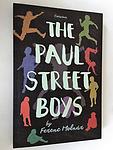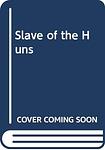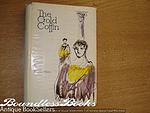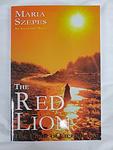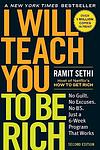The Greatest Hungarian "Historical fiction, Fiction" Books Since 1900
Click to learn how this list is calculated.
This list represents a comprehensive and trusted collection of the greatest books. Developed through a specialized algorithm, it brings together 300 'best of' book lists to form a definitive guide to the world's most acclaimed books. For those interested in how these books are chosen, additional details can be found on the rankings page.
Genres
Historical fiction is a genre of literature that combines fictional stories with real historical events, settings, and characters. These books often take place in a specific time period and are based on research and factual information, but also include imaginative elements to create a compelling narrative. Historical fiction allows readers to experience the past in a unique and engaging way, while also providing insight into the social, cultural, and political issues of the time.
Countries
Date Range
Reading Statistics
Click the button below to see how many of these books you've read!
Download
If you're interested in downloading this list as a CSV file for use in a spreadsheet application, you can easily do so by clicking the button below. Please note that to ensure a manageable file size and faster download, the CSV will include details for only the first 500 books.
Download-
1. Fateless by Imre Kertész
"Fateless" is a harrowing account of a Hungarian Jewish boy's experiences in Nazi concentration camps during World War II. The protagonist is sent to Auschwitz, then Buchenwald, and finally to a factory in Zeitz, enduring brutal conditions and witnessing unimaginable horrors. Despite his experiences, he maintains a detached, almost indifferent perspective, focusing on the mundane aspects of life in the camps, which further highlights the absurdity and horror of the situation. The novel explores themes of identity, survival, and the arbitrary nature of fate.
-
2. Embers by Sandor Marai
"Embers" is a novel about two old friends who reunite after being apart for 41 years. The story takes place in a secluded castle in the Carpathian Mountains, where the two men confront each other about a long-kept secret that has kept them apart. The narrative delves into themes of friendship, love, loyalty, and betrayal, while exploring the intricate dynamics of human relationships. The novel is a poignant examination of the nature of time and memory, and the ways in which they can shape and define our lives.
-
3. The Notebook: The Proof ; The Third Lie : Three Novels by Agota Kristof
"The Notebook: The Proof ; The Third Lie : Three Novels" is a trilogy of novels that follow the lives of twin brothers, living through the harsh realities of war, separation, and betrayal. The first novel, "The Notebook," tells the story of their survival as children in a rural town at the end of World War II. The second book, "The Proof," continues their story into adulthood, exploring the effects of their traumatic childhood. The final book, "The Third Lie," delves into the complexities of their relationship and the secrets they kept from one another. The trilogy is a poignant exploration of identity, love, and the enduring bond of brotherhood.
-
4. Journey by Moonlight by Antal Szerb
"Journey by Moonlight" tells the story of a newlywed Hungarian couple, Mihály and Erzsi, who honeymoon in Italy. Mihály, however, is haunted by his past and becomes increasingly obsessed with his adolescent years, his old friends, and a mysterious brother and sister. This results in him abandoning Erzsi in order to embark on a strange and dark journey of self-discovery. The novel explores themes of nostalgia, love, and the struggle between personal desires and societal expectations.
-
5. Celestial Harmonies by Peter Esterhazy
"Celestial Harmonies" is a historical novel that tells the story of the aristocratic Esterházy family, tracing their lineage from the late Middle Ages to the present day. The narrative is divided into two parts, with the first part featuring a series of vignettes about the family's ancestors, while the second part focuses on the experiences of the narrator's father under the Communist regime in Hungary. The novel is characterized by its intricate structure, complex themes, and lush, poetic language, offering a rich exploration of Hungarian history, family dynamics, and the human condition.
-
6. The Paul Street Boys by Ferenc Molnár
The book is a classic coming-of-age tale set in Budapest, Hungary, at the turn of the 20th century. It follows a group of adolescent boys who are engaged in a territorial battle over a vacant lot they call the "grund," which they use as their playground. The story highlights themes of loyalty, camaraderie, and the struggles of youth as the boys defend their cherished space against a rival group. The narrative focuses on the experiences of the protagonist, who is faced with difficult moral choices and the harsh realities of growing up, as the boys' conflict mirrors the larger social and economic tensions of their time.
-
7. Be Faithful Unto Death by Zsigmond Móricz
The novel is a poignant coming-of-age story set in a Hungarian boarding school at the turn of the 20th century. It follows the life of a young boy from a poor family who earns a scholarship to attend the prestigious institution. His journey is marked by the struggle to fit in among wealthier peers, the harsh discipline of school authorities, and the challenges of adolescence. When a valuable violin goes missing, he is unjustly accused of theft, leading to a profound examination of morality, integrity, and the resilience of the human spirit in the face of injustice and hardship.
-
8. A Funtineli Boszorkány by Albert Wass
The novel is a sweeping historical saga set in Transylvania, focusing on the life of a young peasant girl who, despite her humble origins and the tumultuous times, rises to become a powerful figure in her community. Possessing an indomitable spirit and a mysterious gift that some consider witchcraft, she navigates the complex social hierarchies and political upheavals of her era, becoming both revered and feared. Her journey is marked by love, loss, and the relentless pursuit of her destiny, as she becomes entwined with the fates of the villagers and the land itself, reflecting the broader struggles and resilience of the human spirit.
-
9. They Were Counted by Miklos Banffy
This novel, set in the twilight years of the Austro-Hungarian Empire, weaves a tale of aristocratic decadence, political intrigue, and personal downfall. It follows two cousins, navigating the treacherous waters of high society, politics, and love in Transylvania and Budapest. Through their eyes, the reader experiences the lavish balls, the rural estates, and the corridors of power, all set against the backdrop of an empire on the brink of collapse. The story masterfully portrays the complex interplay between personal ambitions, romantic entanglements, and the shifting sands of political alliances, capturing the essence of a bygone era with vivid detail and emotional depth.
-
10. Give Me Back My Mountains by Albert Wass
"Give Me Back My Mountains" is a poignant historical novel that delves into the struggles and resilience of a Transylvanian noble family during the tumultuous period of World War II and the subsequent communist takeover. The narrative explores themes of loss, identity, and the unyielding human spirit, as the family confronts the confiscation of their ancestral lands and the erosion of their cultural heritage. Through vivid characters and rich descriptions, the book paints a picture of a bygone era, highlighting the personal and collective challenges faced by those who lived through the seismic political shifts of the 20th century in Eastern Europe.
-
11. Árvácska by Zsigmond Móricz
The book is a poignant tale of a young orphan girl navigating the hardships of life in early 20th-century Hungary. Thrust into a world of poverty and struggle, she is passed from one exploitative guardian to another, each more neglectful and abusive than the last. Despite the relentless adversity and the loss of her innocence, the protagonist's resilience and spirit shine through as she endures the cruelties of her existence, searching for a place to call home and a family to love her. The narrative serves as a powerful social commentary on the plight of the vulnerable in a society indifferent to their suffering.
-
12. Slave Of The Huns by Géza Gárdonyi
"Slave of the Huns" is a historical novel that transports readers to the tumultuous era of Attila the Hun's reign, seen through the eyes of a Greek captive. The protagonist, a young man of noble birth, is taken as a slave and must navigate the perilous world of the Hunnic Empire, where brutality and barbarism reign supreme. His journey is one of survival, resilience, and adaptation as he witnesses the fearsome power of the Huns, experiences the complexities of their society, and encounters love amidst the chaos of war. The novel blends adventure, romance, and a richly detailed historical backdrop to explore themes of freedom, cultural clash, and the indomitable human spirit.
-
13. The Gold Coffin by Ferenc Móra
"The Gold Coffin" is a historical novel that transports readers to ancient Egypt, where a young scribe named Tuthmes navigates the complexities of life and power in the Pharaoh's court. After discovering a golden coffin that is said to hold great secrets and power, Tuthmes becomes embroiled in a dangerous web of political intrigue and betrayal. As he seeks to uncover the truth behind the coffin and its mystical properties, he must also contend with his own personal ambitions and the moral dilemmas that arise from his quest for knowledge and influence. Set against the richly detailed backdrop of Egyptian culture and mythology, the novel explores themes of ambition, loyalty, and the enduring human fascination with immortality.
-
14. A Fekete Város by Kálmán Mikszáth
Set in the 19th century Austro-Hungarian Empire, the novel revolves around a young, idealistic engineer who is sent to a small, neglected mining town to oversee the construction of a new project. Upon arrival, he encounters a community steeped in corruption, with a colorful cast of characters who are resistant to change and progress. As he navigates the complexities of local politics and social dynamics, he becomes entangled in the town's dark secrets and the lives of its inhabitants, challenging his principles and ambitions. The story is a blend of satire and social commentary, reflecting on the nature of bureaucracy, the clash between modernity and tradition, and the human condition.
-
15. Kard és Kasza by Albert Wass
"Kard és Kasza" is a historical novel set in the tumultuous period of 16th-century Hungary, a time when the country is caught in the crossfire of the Ottoman Empire's expansion and the Habsburg's imperial ambitions. The narrative follows the life of a noble Hungarian family, focusing on their struggles, loyalty, and the defense of their homeland against the backdrop of war and political upheaval. The story delves into themes of honor, betrayal, and the complexities of feudal allegiances, painting a vivid picture of the era's social and military fabric through the lens of personal and nationalistic endeavors.
-
16. School At The Frontier by Géza Ottlik
"School at the Frontier" is a novel set in a military academy in Hungary during the interwar period, where a group of boys navigates the complexities of adolescence against the backdrop of a strict and often oppressive educational system. The narrative delves into the intricate relationships, hierarchies, and unspoken codes that govern the lives of the students, as they form alliances, confront authority, and grapple with the looming shadow of the outside world's political turmoil. Through the lens of the protagonist's experiences, the story explores themes of loyalty, friendship, and the loss of innocence, painting a poignant picture of youth and the formative experiences that shape one's identity.
-
17. The Red Lion by Mária Szepes
"The Red Lion" is a sweeping historical and esoteric novel that follows the journey of a man through various reincarnations as he seeks the secret of immortality and ultimate wisdom. Set against the backdrop of different eras, the protagonist's quest is driven by his encounter with the mythical Red Lion, an alchemical symbol of enlightenment and transformation. As he navigates the trials of life and the complexities of his inner world, the narrative delves into themes of karma, spiritual growth, and the eternal struggle between the forces of light and darkness within the human soul. The story weaves together philosophy, mysticism, and the relentless pursuit of a higher understanding of life and the universe.
-
18. Régimódi Történet by Szabó, Magda
"Régimódi Történet" is a poignant narrative set in early 20th-century Hungary, focusing on the life of a young girl from a noble family. As she grows up, she witnesses the decline of her family's fortunes and the changing social order following World War I. The novel explores themes of love, loss, and the passage of time, as well as the impact of historical events on individual lives. Through the protagonist's eyes, the reader experiences the challenges of adapting to a new era while clinging to the values and traditions of the past. The story is a rich tapestry of personal and historical transformation, illustrating the resilience of the human spirit in the face of adversity.
-
19. Ne Féljetek by Anna Jókai
"Ne Féljetek" is a poignant reflection on the human condition, set against the backdrop of a society grappling with the oppressive weight of a totalitarian regime. The narrative delves into the lives of individuals who, amidst the pervasive fear and silence enforced by the state, find themselves wrestling with the moral complexities of courage, resistance, and the yearning for freedom. Through a tapestry of interconnected stories and characters, the book explores the subtle acts of defiance and the resilience of the human spirit in the face of an unyielding political landscape, ultimately offering a testament to the enduring power of hope and the unquenchable desire for change.
-
20. Für Elise by Szabó, Magda
The novel revolves around the life of a woman named Elise, who, after the death of her husband, discovers a series of letters that reveal hidden aspects of her marriage and her husband's past. As she delves into the contents of the letters, Elise is forced to confront the illusions and truths of her relationship, as well as her own identity. Set against the backdrop of a changing society, the story explores themes of love, betrayal, and the complex layers of human relationships, ultimately leading Elise on a poignant journey of self-discovery and redemption.
-
21. Jadviga Párnája by Pál Závada
"Jadviga Párnája" is a historical novel set in a Hungarian village at the turn of the 20th century. It delves into the life of a young woman named Jadviga, who is of Polish descent, and her marriage to a Hungarian man, András. The narrative unfolds through a series of letters, diary entries, and other documents, painting a vivid picture of rural life, social norms, and the personal struggles of the characters. The novel explores themes of love, fidelity, identity, and the complexities of human relationships against the backdrop of a society grappling with change and the influences of modernity.
-
22. The Book Of Fathers by Miklós Vámos
"The Book of Fathers" chronicles the lives of twelve generations of men from a Hungarian family, spanning over 300 years from the 18th century to the modern day. Each chapter focuses on one descendant, capturing the historical and personal challenges they face, from the rise and fall of empires to the intimate struggles of love and loss. The novel weaves a tapestry of Hungarian history and the family's legacy, marked by a mystical diary that is passed down from father to son, which possesses the power to influence the fate of its keeper. Through the generations, the book becomes a symbol of the family's heritage and the enduring connection between the past and the future.
-
23. Guilt by Laszlo Németh
The novel explores the psychological and moral complexities of guilt through the story of a young doctor who, after accidentally causing a patient's death, is consumed by his own conscience and the judgment of his small community. As he grapples with the weight of his actions and the expectations of society, the protagonist's inner turmoil leads him to question the nature of guilt, responsibility, and redemption. Set against the backdrop of early 20th-century Hungary, the narrative delves into the human psyche, examining how personal and collective guilt can shape one's identity and destiny.
Reading Statistics
Click the button below to see how many of these books you've read!
Download
If you're interested in downloading this list as a CSV file for use in a spreadsheet application, you can easily do so by clicking the button below. Please note that to ensure a manageable file size and faster download, the CSV will include details for only the first 500 books.
Download




